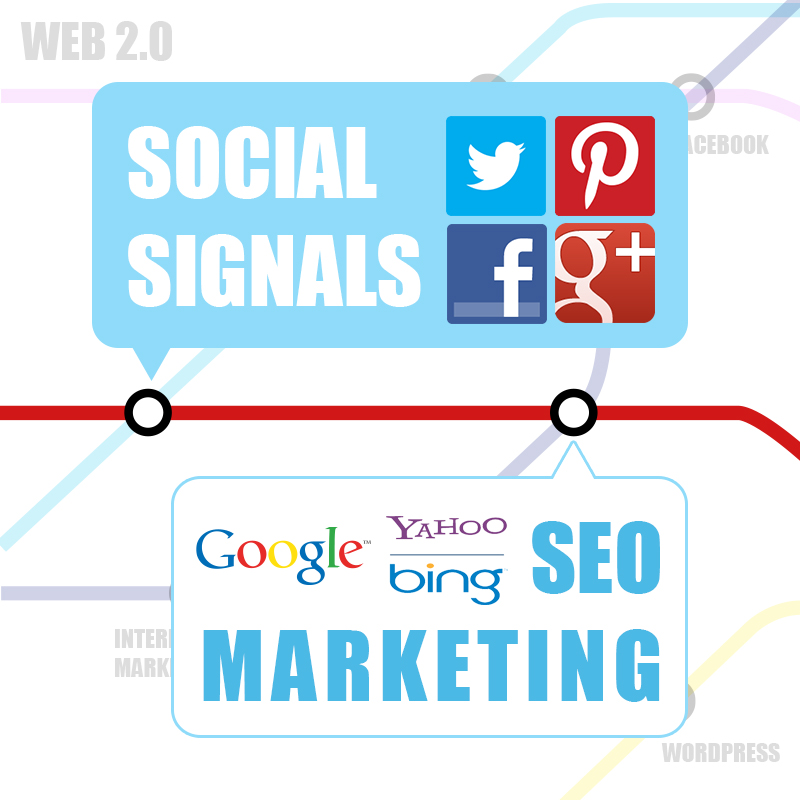Two
years back, #seo expert Danny Sullivan explored how #socialmedia signals
affected search engine rankings. Back then, he surmised that while Facebook
remains irrelevant to Google, retweets has become an invaluable part of
building links. Immediately after, Google mogul Matt Cutts confirmed that
organic SEO is indeed influenced by social media signals.
Although
many SEO professionals are still evaluating the extent of social signal’s
effect on rankings, various research studies prove that they are correlated to
an increase in site traffic, rankings, and consequently, revenue.
Image From: http://socialmetricspro.com/wp-content/uploads/2012/08/connection_ssignals_seo.jpg
Social signals affect rankings in two ways: direct and indirect. Direct social media ranking signals include:
·
Facebook likes and shares
·
Twitter followers and retweets
·
Tweets where your brand is indicated or which
pertain to a linkback to your site
·
Individuals who included you in their Google+
circles
On
the other hand, indirect influence is directed by these factors:
·
Inbound links and mentions
This
is the most important role of social media. The more linkbacks and social media
mentions you procure, the more brand awareness and online visibility you raise.
In fact, inbound links , especially from high quality sites, are far more
important as a ranking criteria than social media and Matt Cutts has made this
pretty clear.
·
Positive feedback in Google, Yelp and other
similar sites
Through
social networking channels, businesses are able to create a distinct and
presentable image for their brand. More importantly, it allows them to
establish genuine customer connection and trust and boost customer loyalty.
This is turn, increases the likelihood of more positive reviews on sites like
Google Local and Yelp.
Positive
reviews mean satisfied customers. The number of positive feedback directly
affects local and national search rank. The more satisfied clients you have
tweeting about you or promoting you on their Facebook accounts, the better
chances you have of attaining a higher ranking.
·
Less bounce rate and longer visitor time on
website
Decreased
bounce rate means visitors are pleased with your web content, thus compelling
them to spend more time on-site. Similarly, if more consumers are aware of your
brand through social media, then the higher chances you have of acquiring
repeat visits, and the longer time-on-site you have. Google is able to accurately gauge if a website did satisfy customer
queries and how many repeat visits there are to the same site, which makes this
metric an effective tool for increasing organic search ranks.
There’s also that recent
implementation of Google AuthorRank, which is aimed at identifying credible
authors so that their content do not just receive higher search engine
rankings, but also give more value to their outbound links.
While
the impact of social signals are still under continuous study, their expanding
role in algorithms that pertain to ranking can not be denied. Companies who
welcome social media signals with open arms and eyes have been proven to enjoy
wonderful benefits in terms of lead conversion, customer loyalty and awareness,
word-of-mouth advertising and ultimately, profit.

